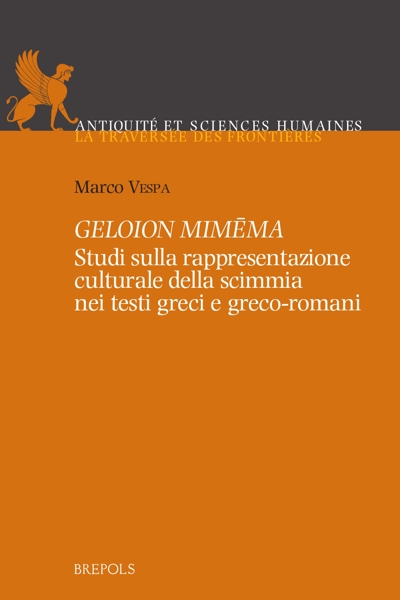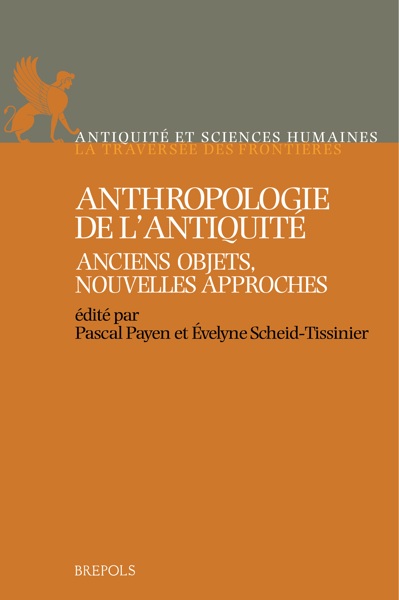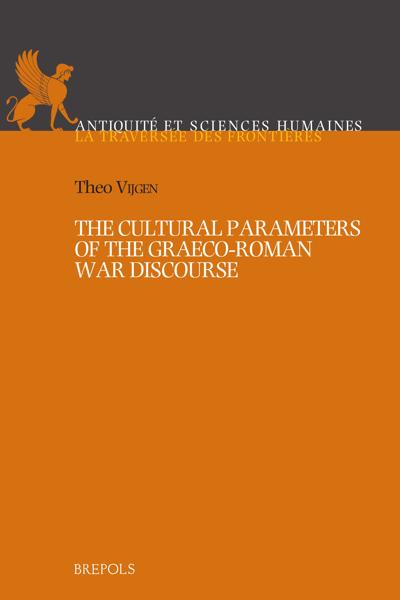
- Pages: 415 p.
- Size:156 x 234 mm
- Illustrations:2 b/w, 9 col.
- Language(s):English, Greek, Latin
- Publication Year:2026
- € 95,00 EXCL. VAT RETAIL PRICE
- ISBN: 978-2-503-59655-6
- Paperback
- Available
- € 95,00 EXCL. VAT RETAIL PRICE
- ISBN: 978-2-503-59656-3
- E-book
- Available
This interdisciplinary volume sheds light on the fascination with origins from different perspectives: how is the power of origins employed in historiography, in ancient literature, in religious contexts, in philosophy, or in political debate?
Athanassios Vergados is Professor of Greek at Newcastle University. His publications include A Commentary on the Homeric Hymn to Hermes (2013) and Hesiod’s Verbal Craft: Studies in Hesiod’s Conception of Language and Its Ancient Reception (2020).
Anke Walter is Professor of Classics (Latin Philology) at the University of Zurich. She has published monographs on Storytelling in Flavian Epic (2014), Time in Ancient Stories of Origin (2020), and Festivals in Latin Literature – The Poetics of Celebration (2025).
This interdisciplinary volume sheds light on the fascination with origins from different perspectives. The international team of contributors investigate how the power of origins is employed in historiography, in ancient literature, in religious contexts, in philosophy, and in political debate. What is it that makes origins such a fascinating form of discourse? The contributions explore, from very different angles, how aetiology works as a creative process that collapses temporal categories (present/past) and forges the past in order to legitimise the present, ultimately establishing cultural identity. Other topics include the interaction of time and space in the discourse of origins and the different ways in which aitia can bolster or undermine political power, of an elite or of the people. Origins, it is shown, are a multi-faceted and fluid form of discourse: inherent in them is the possibility of constantly re-reading and re-shaping the past, and thus they are also a site of competition and correction. Attention is also paid to the functioning of origins in different media, both literary and iconographical. It becomes clear that the appeal to origins is a highly versatile mode of discourse that can express a wide range of meanings.
Chapter I. Introduction (Athanassios Vergados & Anke Walter)
Chapter II. Si[gh]ting Origins in Hesiod’s Theogony (Jenny Strauss Clay)
Chapter III. Isidore of Seville and the Power of Origo. The Concept at Work (Sergey Vorontsov)
Chapter IV. Picturing Dynastic Descent. Relative vs. Absolute Origin in the Genealogical Imagery of the Seventeenth and Eighteenth Century (Volker Bauer)
Chapter V. Ovid and Origins. The Opening Cosmogony in the Metamorphoses (Claudio Barone)
Chapter VI. Telling Origins by Challenging Origins – Ovid’s Swan Narratives in the Metamorphoses (Philipp Geitner)
Chapter VII. Indispensable Fictions. Ovid’s Metamorphoses and the Augustan Discourse of Origins (Alexander Kirichenko)
Chapter VIII. Comic Cosmogonies. Re-booting the Universe (Niall W. Slater)
Chapter IX. Aporia and Medial Beginnings in Plato and the Greek Literary Tradition (Matthew Pincus)
Chapter X. A New Beginning. Aristotle and the Birth of Zoology (Claudia Zatta)
Chapter XI. Etymology and Aetiology in Hellenistic and Imperial Didactic Poetry (Athanassios Vergados)
Chapter XII. In the Beginning. The Competitive Origins of Greek and Jewish Historiography in Josephus’ Against Apion (Sarah Teets)
Chapter XIII. Aitia of the Past – Stories of Origin in Silius Italicus’ Punica (Anke Walter)
Chapter XIV. Creation and Epic Beginnings. Sibylline Oracles I, 1-64 and I Homeric Centos 1-91 (Anna Lefteratou)
Chapter XV. An Empire of Origins. Varro, Etymology, and Empire (Jay Fisher)
Chapter XVI. Horace and the Beginnings of Rome (Andreas T. Zanker)
Chapter XVII. Qui primus Romae... Pliny’s Natural History and the Encyclopedic Mode of Aetiology (Eva Marie Noller)
Index locorum
Index rerum




